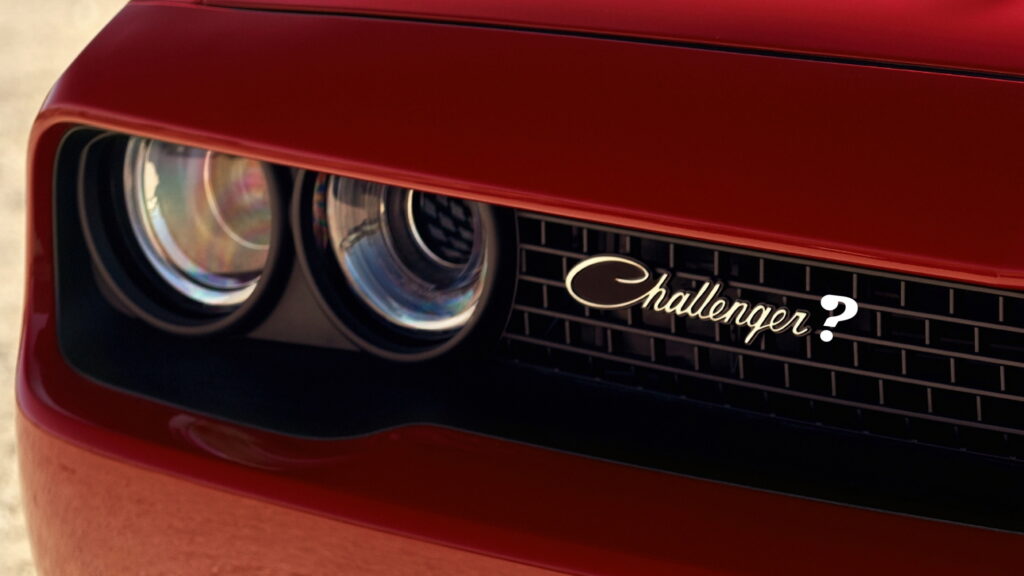Dodge’s CEO says that the company isn’t ready to abandon the Challenger name, even if it won’t return in the near future
3 hours ago
 –>
–> 
–>
Dodge officially unveiled the 2024 Charger Daytona EV today, and with it confirmed that the same name will be applied to both the two- and the four-door versions of the car. That leaves little room for a next-generation Challenger, but the automaker isn’t abandoning the name altogether.
“We own the Challenger nameplate — we own a whole of bunch of nameplates that we’ve got in the drawer,” Dodge CEO Tim Kuniskis told media at a presentation event for the 2024 Dodge Charger Daytona. “So I don’t know what we’ll do with it, if we ever do anything with it, but we’re not using that on this car.”
After the media event, we contacted Dodge for further context, and a spokesperson told us that, “We own the name – we’ll have to wait and see” if and when it’s used again.
advertisement scroll to continue
While that clearly signifies that Challenger fans should not hold their breaths waiting for a new generation of the model to arrive, it leaves them with some hope, as the automaker leans into its muscular history to sell newfangled EVs.
More: 2024 Dodge Charger Daytona EV Has Up To 670 HP, Straight-Six And Sedan Here Next Year
[embedded content]
The combination of old and new is a crucial aspect of the automaker’s strategy for its forthcoming EVs. During the presentation we followed, Kuniskis highlighted that Dodge‘s decision to adopt a platform capable of accommodating both electric and internal combustion powertrains stems from the anticipation that America’s coastal regions will embrace high-tech EVs at a faster rate compared to those in the middle of the country.
With a Charger that caters to both the EV-curious, and lovers of old school muscle cars, Dodge can prepare for the future, without abandoning either group buyers. He said he firmly believes that the transition to electric vehicles is on its way, and that once the infrastructure is ready to meet the country’s needs, everyone will consider buying electric vehicles, no matter where they live.
Read: How Does The 2024 Dodge Charger Coupe Compare To The 2023 Challenger?
Until we get there, it may be handy to have a few historical names, such as Challenger, “in the drawer,” as he put it. Until then, the Charger nameplate has won out, largely because of its clear applicability to electric vehicles. As to why the company decided to unify both vehicles’ names, he told Road & Track that the team wanted to keep things simple for buyers.
“We wanted to make sure that we had this very flexible platform that could do ICE, it could do 400-volt, it could do 800-volt, and it could do a two-door, and it could do a four-door and flex anywhere in there,” Kuniskis said. “We wanted to make sure that we had maximum commonality to be able to do that. Now that meant that the cars were going to have a very similar character, which meant very early on we decided that we needed one name.”
